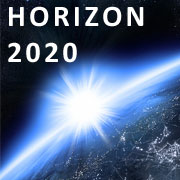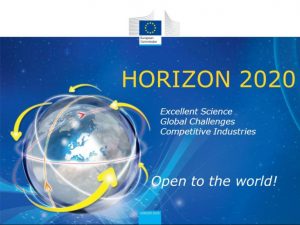Influencing factors – where to work and study
UPP have released Skills to Pay the Bills: How students pick where to study and where to work. In the report they consider decision making at application stage, the relative importance of employability and which factors drive graduation retention in the area.
- 70% of students said they would have been influenced by a university’s TEF score when selecting where to study (last year 84% said they would have been influenced by TEF – UPP suggest the decrease is that students have lost confidence in the TEF as a tool to help them differentiate between institutions). 58% of students declared they would not pay more fees to study at a gold or silver institution, however, applicants to Russell Group providers were more willing to pay an increased fee
- More students (+6%) were aware of apprenticeships than in previous years. 30% say that they genuinely considered undertaking an apprenticeship before committing to their undergraduate degree. However, many decided against an apprenticeship because they thought it would limit their future career choices.
- 40% of students were prepared to pay more (£2,000+ more) in fees if their degree guaranteed them a job with a salary minimum above £24,000 upon graduation. Students prioritised investment in employability programmes and work experience over research investment spend in institutions. Across all responses it was clear students feel vulnerable and are seeking future security – they are carefully weighing up whether they will benefit from the graduate premium
- Students relocate after graduating for economic reasons – the perception of prosperity and sufficient graduate opportunities were the most significant factor to retain graduates within the area. The report recommends universities that aim to retain more graduate talent should work to increase the amount of graduate employment locally and effectively communicate these opportunities. For example, pairing students and recent graduates with local businesses.
The second most influential factor was the availability of affordable accommodation. The golden handcuffs are areas which combine good graduate employment, affordable accommodation, and an attractive ‘look and feel’ to the local area (see map diagram on following page)
Read the concluding remarks and the recommendations for universities on page 15.
“Universities must be careful to ensure that they act in ways that cement the personal, institutional and civic bargain embodied by higher education. Focusing on employability, opportunity and retention is a vital part of that bargain.”
The above report was compiled from data collected in the UPP Annual Student Experience Survey. Click here for a deeper dive into the wider survey’s data and infometrics.
HE trends, facts and figures
UUK have published Higher Education in Facts and Figures 2017 which provides headline data on students, staff and finances. UUK describe their highlights:
- In 2017 overall student satisfaction at UK HE institutions was 84%
- University applications from 18 year olds in areas of England with lower HE participation rates have increased to record levels (part time students continue to decline)
- Employment rates and median salaries continue to be higher for graduates than for non-graduates
- Just under a quarter of total university income comes from direct UK government sources
- 16% of research income comes from sources outside of the UK
- The report stresses the diversity of students, the UK is the second most popular destination behind America and 14% of undergraduates, 38% of postgraduates, and 29% of academic staff are from outside the UK (of which 17% EU). Almost a quarter of senior lecturers and 18% of professors are non-UK nationals. 45% of the academic workforce are female.
Industrial Strategy
The Industrial Strategy Commission published their Final Report recommending a complete overhaul of the Government’s initial plans. They recommended the Industrial Strategy be owned by all and be “rethought as a broad, long-term and non-partisan commitment to strategic management of the economy… [it] must be an ambitious long-term plan with a positive vision for the UK.”
Dr Craig Berry (Sheffield Political Economy research Institute): “Industrial strategy isn’t just about supporting a small number of sectors. It should focus on big strategic challenges like decarbonisation and population ageing – and ultimately it should aim to make material differences to people’s everyday lives. This will mean rethinking how government makes policies and chooses its investments.”
Recommendations:
- A powerful industrial strategy division should be established within the Treasury to catalyse all other departments to devise and implement policies consistent with the industrial strategy. The ambition should be to achieve positive outcomes and make a material difference to people’s everyday lives. They propose overhauling current decision making on large strategic projects to take into account the effect on people’s lives. In the trade-off between economic efficiency and the equitable treatment of communities it is right for fairness to communities take priority in some cases
- The new UK Research and Innovation agency (UKRI) should inform, and be informed by, the proposed new industrial strategy division. The UKRI board should have a high-level advisory committee including representatives from all three Devolved Administrations, and from key local authorities with devolution deals.
- A new independent expert body – The Office for Strategic Economic Management – was proposed to monitor and measure the long-term success of the new strategy. It should be created on the model of the Office for Budgetary Responsibility
- The new strategy should commit to providing what they call “Universal Basic Infrastructure”. All citizens in all places should be served by a good standard of physical infrastructure and have access to high quality and universal health and education services.
- The report says that skills policy has suffered decades of damaging instability, and so policy makers and institutions should provide stability, including a cross-party consensus. Closer working and co-operation is required between the Department for Education and BEIS, national and local authorities, and the higher and further education funding and regulatory systems. Read section 2.4 The skills system from page 37 for more detail on this.
- A long-term commitment to raise the R&D intensity of the economy, measured as the ratio of R&D spend, should be accompanied by a more detailed understanding of the whole innovation system. This will require intermediate milestones for both business and government/HE R&D intensity, supported by proposals for concrete interventions at a material scale, and with a new emphasis on demand-led initiatives to supplement the supply-side approach characteristic of the last 15 years of science and innovation policy. The new strategy should be designed with a comprehensive understanding of the whole R&D landscape and the relationships between its different parts. New institutions must have clarity of mission and be judged by the appropriate metrics. More on research and development on page 41, section 2.5 The research and innovation landscape.
- The UK should seek to maintain and enhance the international character of its research system, including through future participation in EU Framework Programmes, for example through associate country status.
- Health and social care must be central to the new industrial strategy. As well as offering potential for productivity gains and new markets, achieving better outcomes for people’s wellbeing must be placed at the centre of the strategy.
- The new strategy should be organised around meeting the long-term strategic goals of the state. These include decarbonisation of the economy, investing in infrastructure and increasing export capacity.
- Innovation policy should focus on using the state’s purchasing power to create new markets and drive demand for innovation in areas such as healthcare and low carbon energy. Harness the UK’s current world-class innovation by re-linking excellence in basic and applied research.
- Place continues to remain central to the new strategy – an industrial strategy should not try to do everything everywhere, but it should seek to do something for everywhere. In 5 or 10 years’ time we should be able to pick anywhere in the UK and say how the strategy has helped that place, its people and industries. As most places perform below the UK average the strategy should push further and faster devolution. LEP boundaries should coincide with the appropriate economic geography.
Health and social care at the centre of industrial strategy
An effective, efficient and financially viable health and social care system, in the context of an ageing demography, is a key strategic goal for the UK. The new strategy must incorporate social care, public health, the NHS (as a market as well as a service), and the UK’s strong industrial sectors in pharma/life sciences and medical technology, as one whole system.
Future increases in public spending on health should come with the strict expectation that investment should be used to raise productivity. The provision of health and social care in all places means that even small productivity increases could have a significant impact.
The new industrial strategy should aim to achieve higher productivity and better health outcomes by ensuring more skilled and satisfying jobs in the health and social care sector. An urgent focus on redesigning training and education should aim to both raise the skills of existing employees and attract new people to the sector.
Health and social care services should be integrated, but this should be steered by the goal of achieving better outcomes for people’s wellbeing and not purely by reducing costs. This will lead to savings but not on a sufficient scale to meet the spending pressures of an ageing population. Lessons must be learned from the places which are now experimenting with health and social care integration to build the evidence base for how to achieve better outcomes.
Read more on Health & Social Care from page 64.
Goals
The report outlines what the UK’s 2017 goals should be:
- Ensuring adequate investment in infrastructure
- Decarbonisation of the energy economy
- Developing a sustainable health and social care system.
- Unlocking long-term investment
- Supporting high-value industries and building export capacity
- Enabling growth in all parts of the UK
Other news
Apprenticeships: DfE confirmed they will review level 4 and 5 technical education to ensure it better addresses the needs of learners and employers. This includes progression from the new T level which will be taught from 2020. Anne Milton (Apprenticeships and Skills Minister) said: “High quality technical education helps young people and adults get into new, fulfilling and better paid careers. That’s good for them and good for our economy. This is the way we build a better, higher skilled workforce.”
Getting your research into parliament: A new How to guide has been released. Here are there 10 top tips:
Making connections
- Be seen online or at events, so it’s easy for us to find you
- Blog your research so we know what you are working on
- Follow what we are doing on the Parliament website and via Twitter
- Sign up to POST, Commons and Lords Library, and Select Committee Alerts
- Invite parliamentary staff to your events
Presenting research
- Don’t just send your journal articles: send us a brief and include your sources
- Be relevant: start with a summary and focus on how your research impacts people
- Use visuals: a picture can paint a thousand words (and save time and space)
- Be clear and accurate: be explicit about all limitations and caveats
- Don’t forget the essentials: include your contact details and date your briefing
Subscribe!
To subscribe to the weekly policy update simply email policy@bournemouth.ac.uk
JANE FORSTER | SARAH CARTER
Policy Advisor Policy & Public Affairs Officer
65111 65070
Follow: @PolicyBU on Twitter | policy@bournemouth.ac.uk


 When: 30 January 2018
When: 30 January 2018





 Every BU academic has a
Every BU academic has a  By clicking on this box, on the left of the Research Blog home page just under the text ‘Funding Opportunities‘, you access a
By clicking on this box, on the left of the Research Blog home page just under the text ‘Funding Opportunities‘, you access a 
















 SPROUT: From Sustainable Research to Sustainable Research Lives
SPROUT: From Sustainable Research to Sustainable Research Lives BRIAN upgrade and new look
BRIAN upgrade and new look Seeing the fruits of your labour in Bangladesh
Seeing the fruits of your labour in Bangladesh Exploring Embodied Research: Body Map Storytelling Workshop & Research Seminar
Exploring Embodied Research: Body Map Storytelling Workshop & Research Seminar Marking a Milestone: The Swash Channel Wreck Book Launch
Marking a Milestone: The Swash Channel Wreck Book Launch ECR Funding Open Call: Research Culture & Community Grant – Application Deadline Friday 12 December
ECR Funding Open Call: Research Culture & Community Grant – Application Deadline Friday 12 December MSCA Postdoctoral Fellowships 2025 Call
MSCA Postdoctoral Fellowships 2025 Call ERC Advanced Grant 2025 Webinar
ERC Advanced Grant 2025 Webinar Update on UKRO services
Update on UKRO services European research project exploring use of ‘virtual twins’ to better manage metabolic associated fatty liver disease
European research project exploring use of ‘virtual twins’ to better manage metabolic associated fatty liver disease